The Works of Hugo Grotius (11 vols.)
Digital Logos Edition
Overview
Hugo Grotius was an Arminian leader whose thought had a substantial impact on the Reformation. Imprisoned and exiled for his beliefs, he wrote extensively on the nature of Christianity and natural law, and his writings on apologetics were the first Protestant works of their kind. His groundbreaking governmental theory of atonement became a foundational point for the Arminian movement.
The Works of Hugo Grotius collection introduces readers to Grotius, one of the seventeenth century’s greatest philosophers and writers. His theological, political and legal work is heralded as the cornerstone of international law, setting precedents for maritime trade and establishing standards for human rights and just warfare. An influential writer in politics and theology as well as prose, Grotius prefigured Milton’s Paradise Lost with his own dramatic work on the fall of man. This 11-volume collection introduces you to some of Grotius’ major works and includes three biographies on this influential Dutch jurist.
In the Logos edition, The Works of Hugo Grotius is completely searchable—Scripture passages appear on mouse-over and link to the original language texts and English translations in your library. This makes these volumes more powerful and easier to access than ever before. Search by topic or Scripture reference—finding, for example, every mention of “just” or “humanity.”

Key Features
- Three volumes on human rights and the expectations of just warfare
- Influential commentary on maritime trade
- Comprehensive biographies of Grotius
Product Details
- Title: The Works of Hugo Grotius
- Volumes: 11
- Pages:3,254
Individual Titles
- The Truth of the Christian Religion
- The Rights of War and Peace, Including the Law of Nature and of Nations, vol. 1
- The Rights of War and Peace, Including the Law of Nature and of Nations, vol. 2
- The Rights of War and Peace, Including the Law of Nature and of Nations, vol. 3
- The Freedom of the Seas, or, The Right Which Belongs to the Dutch to Take Part in the East Indian Trade
- The Opinions of Grotius as Contained in the Hollandsche Consultatien en Advijsen
- On the Origin of the Native Races of America
- The Adamus Exul of Grotius, or, The Prototype of Paradise Lost
- Hugo Grotius: The Father of the Modern Science of International Law
- The Life of Hugo Grotius: With Brief Minutes of the Civil, Ecclesiastical, and Literary History of the Netherlands
- The Life of the Truly Eminent and Learned Hugo Grotius
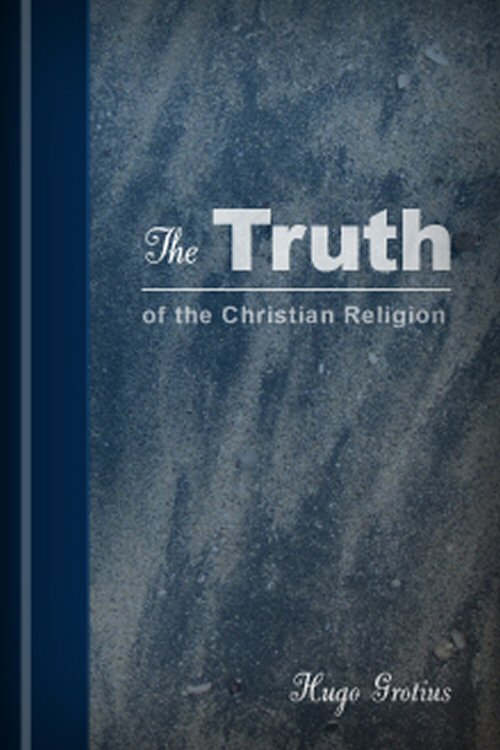
In what is considered the first Protestant textbook concerning Christian apologetics, Hugo Grotius expounds on the nature of God, the existence and personhood of Jesus, and the authority of the New Testament. He discusses Judaism, Islam, and pagan religions, offering refutations of each in light of the internal and external evidence in favor of the Christian faith, declaring it the only sufficient religion.
In addition to Grotius’ six-book compilation, two books by editor Jean Le Clerc are included, which provide further commentary on both the nature of Christian sects and indifference toward religion.
Hugo Grotius (1583–1645) was a Dutch jurist, Christian apologist, philosopher, and theologian. His foundational and instrumental treatises and manifestos on war, human rights, and maritime trade earned him recognition as “the father of international law.”
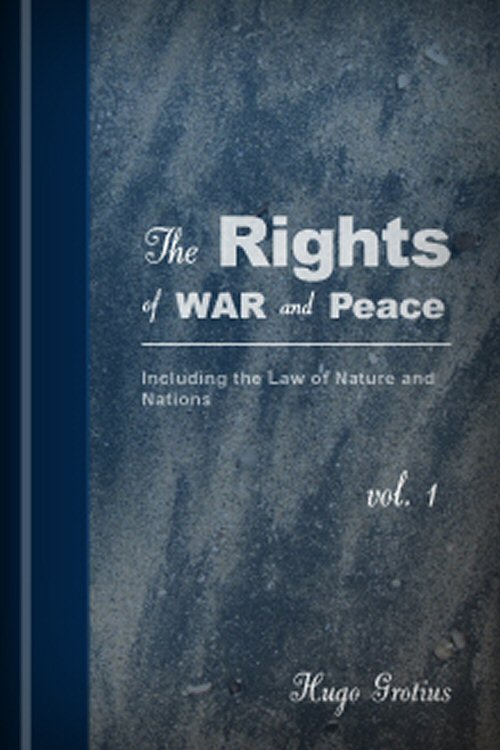
Since the nineteenth century, Hugo Grotius’ three-volume The Rights of War and Peace has been viewed as the foundational work for the universal code of law and the laws of war and peace. His treatise, based on the principles of natural law, defends the rights of individuals—both states and private persons. Grotius’ immensely important work influenced the moral, political, legal, and theological thought of the Enlightenment.
Volume one examines the lawfulness of war, the nature of “just” war, and the defense of person and property.
Hugo Grotius was a brilliant man and tireless scholar of the Dutch Enlightenment. In these three volumes . . . he does nothing less than discuss the history of war up to his times, but not just as history: he seeks to define the difference between just and unjust wars, the use of pretexts for war, the purposes of embassies, treaties, and alliances, and the ethics of waging war. He admits early that civilized nations can behave like common thieves, but makes the best case he can for suppressing savagery. Most admirable is his thorough research: he explores the major authors of antiquity, Jewish tradition, and the Christian Church, quoting from them often and to the point. Some of his opinions are as shocking as anything in Machiavelli, but they are always supported by historical evidence. It is not important that he be always right: it is important that he tried to be, with untiring skill and diligence.
—Willis G. Regier, director of the University of Illinois Press
Hugo Grotius (1583–1645) was a Dutch jurist, Christian apologist, philosopher, and theologian. His foundational and instrumental treatises and manifestos on war, human rights, and maritime trade earned him recognition as “the father of international law.”
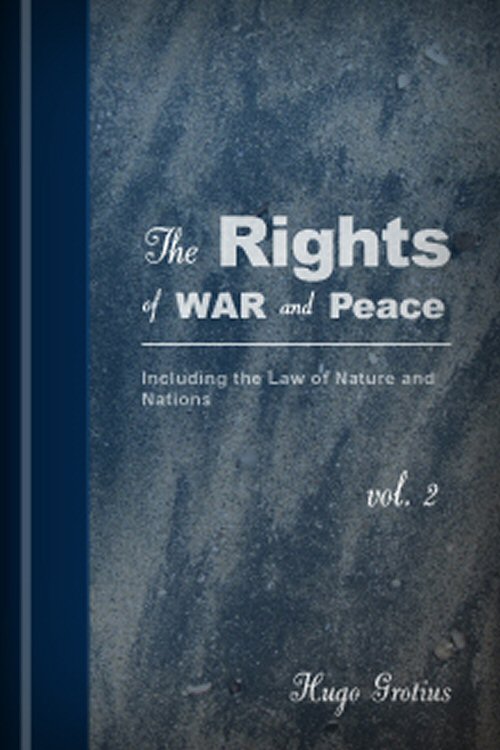
Since the nineteenth century, Hugo Grotius’ three-volume The Rights of War and Peace has been viewed as the foundational work for the universal code of law and the laws of war and peace. His treatise, based on the principles of natural law, defends the rights of individuals—both states and private persons. Grotius’ immensely important work influenced the moral, political, legal, and theological thought of the Enlightenment.
Volume two discusses the implications of treaties, promises, and contract, identifies three “just causes” for war—self-defense, reparation of injury, and punishment” and considers unjust and doubtful causes of war.
Hugo Grotius was a brilliant man and tireless scholar of the Dutch Enlightenment. In these three volumes . . . he does nothing less than discuss the history of war up to his times, but not just as history: he seeks to define the difference between just and unjust wars, the use of pretexts for war, the purposes of embassies, treaties, and alliances, and the ethics of waging war. He admits early that civilized nations can behave like common thieves, but makes the best case he can for suppressing savagery. Most admirable is his thorough research: he explores the major authors of antiquity, Jewish tradition, and the Christian Church, quoting from them often and to the point. Some of his opinions are as shocking as anything in Machiavelli, but they are always supported by historical evidence. It is not important that he be always right: it is important that he tried to be, with untiring skill and diligence.
—Willis G. Regier, director of the University of Illinois Press
Hugo Grotius (1583–1645) was a Dutch jurist, Christian apologist, philosopher, and theologian. His foundational and instrumental treatises and manifestos on war, human rights, and maritime trade earned him recognition as “the father of international law.”
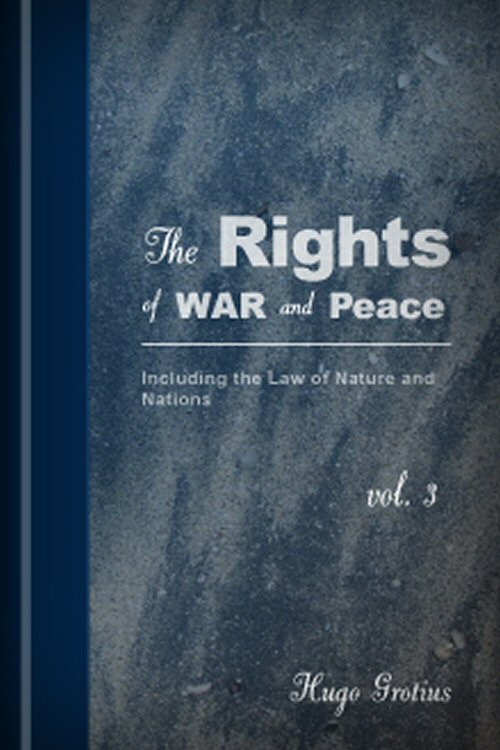
Since the nineteenth century, Hugo Grotius’ three-volume The Rights of War and Peace has been viewed as the foundational work for the universal code of law and the laws of war and peace. His treatise, based on the principles of natural law, defends the rights of individuals—both states and private persons. Grotius’ immensely important work influenced the moral, political, legal, and theological thought of the Enlightenment.
Volume three establishes what is lawful in war, how prisoners should be treated, and the implications and procedures for implementing peace treaties, arbitrations, and surrender.
Hugo Grotius was a brilliant man and tireless scholar of the Dutch Enlightenment. In these three volumes . . . he does nothing less than discuss the history of war up to his times, but not just as history: he seeks to define the difference between just and unjust wars, the use of pretexts for war, the purposes of embassies, treaties, and alliances, and the ethics of waging war. He admits early that civilized nations can behave like common thieves, but makes the best case he can for suppressing savagery. Most admirable is his thorough research: he explores the major authors of antiquity, Jewish tradition, and the Christian Church, quoting from them often and to the point. Some of his opinions are as shocking as anything in Machiavelli, but they are always supported by historical evidence. It is not important that he be always right: it is important that he tried to be, with untiring skill and diligence.
—Willis G. Regier, director of the University of Illinois Press
Hugo Grotius (1583–1645) was a Dutch jurist, Christian apologist, philosopher, and theologian. His foundational and instrumental treatises and manifestos on war, human rights, and maritime trade earned him recognition as “the father of international law.”
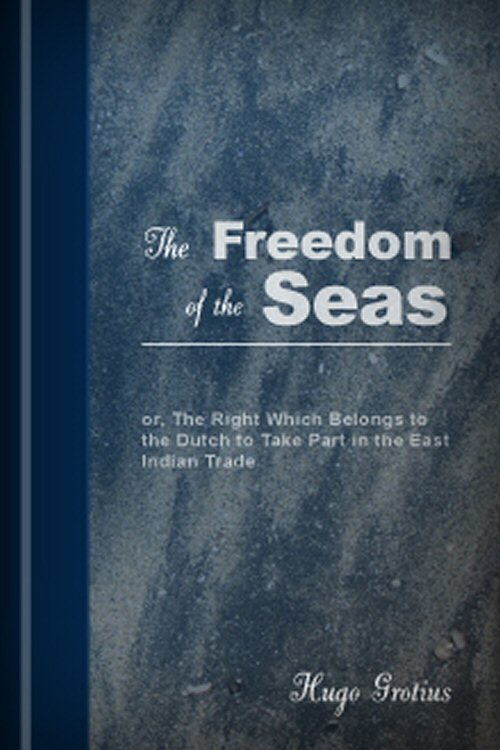
Written in response to the Portuguese Mare Clausum (“closed sea”) policy and Portugal’s monopolistic claims on the East Indian trade routes, Hugo Grotius’ treatise on international law asserts that oceans should be considered common property, and as such, international territory that all nations may use for maritime trade. His work establishes the principle of “free seas” and defends the seizures of Portuguese vessels. This volume includes the original Latin text and a translation.
Hugo Grotius (1583–1645) was a Dutch jurist, Christian apologist, philosopher, and theologian. His foundational and instrumental treatises and manifestos on war, human rights, and maritime trade earned him recognition as “the father of international law.”
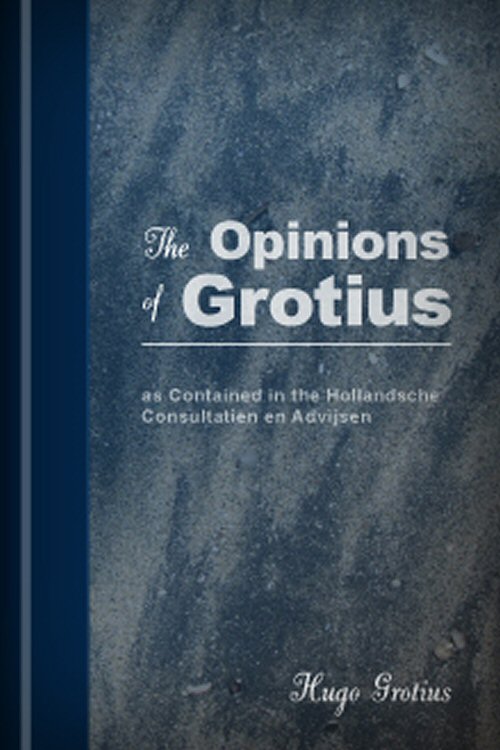
The Opinions of Grotius gleans Grotius’ legal opinions from the six volumes of the Hollandsche Consultatien. These opinions have been arranged according to the judicial questions discussed in an effort to create a more organized compilation, and they have been fully annotated. This volume includes abbreviations, a biographical sketch of Hugo Grotius, and an index.
Hugo Grotius (1583–1645) was a Dutch jurist, Christian apologist, philosopher, and theologian. His foundational and instrumental treatises and manifestos on war, human rights, and maritime trade earned him recognition as “the father of international law.”
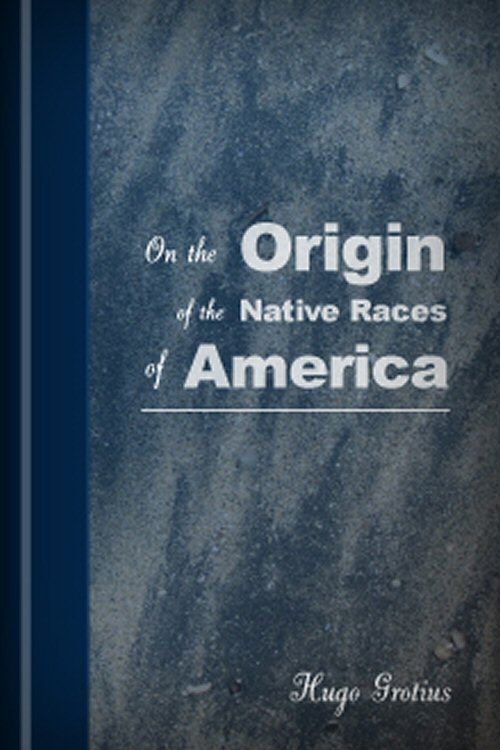
Hugo Grotius’ dissertation explores the various possibilities of explaining the origin of the native races of America. He considers language and customs, as well as historical accounts. Included in this volume is Peter Albinus’ “A Treatise on Foreign Languages and Unknown Lands” which discusses the advantages of studying languages, as well as a study of discoveries made at the turn of the fifteenth century that explores Columbus’ rationale for heading west.
Hugo Grotius (1583–1645) was a Dutch jurist, Christian apologist, philosopher, and theologian. His foundational and instrumental treatises and manifestos to international law earned him recognition as “the father of international law.”
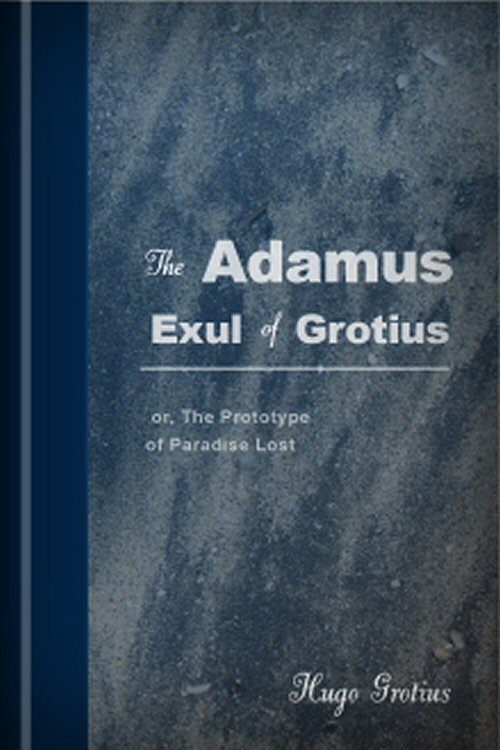
This five-part drama regarding the fall of man was first published when Hugo Grotius was eighteen years old. It is thought to be a prototype of John Milton’s renowned Paradise Lost, and it portrays unmistakable similarities in language and literary construction. Translated from the original Latin into blank verse, this edition is perfect for studies on Milton and historical and literary interpretations of the Fall.
Hugo Grotius (1583–1645) was a Dutch jurist, Christian apologist, philosopher, and theologian. His foundational and instrumental treatises and manifestos to international law earned him recognition as “the father of international law.”
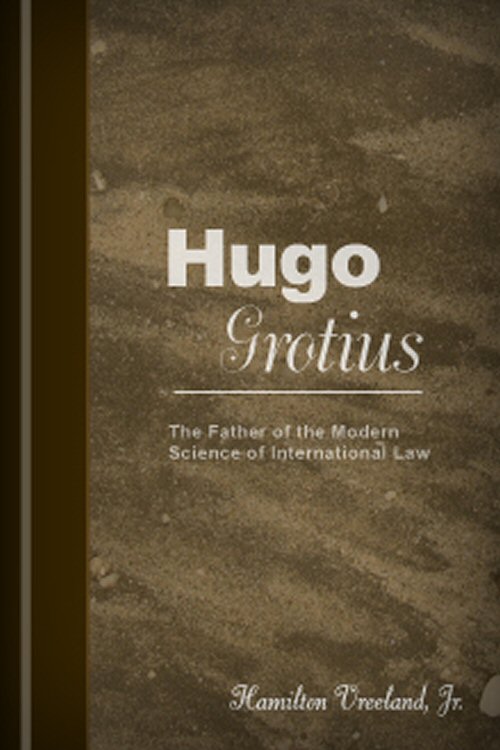
Hamilton Vreeland Jr. presents a comprehensive overview of Hugo Grotius’ life, detailing his works, imprisonments, and political influence.
Hamilton Vreeland Jr. was an associate professor of law at the Catholic University of America.
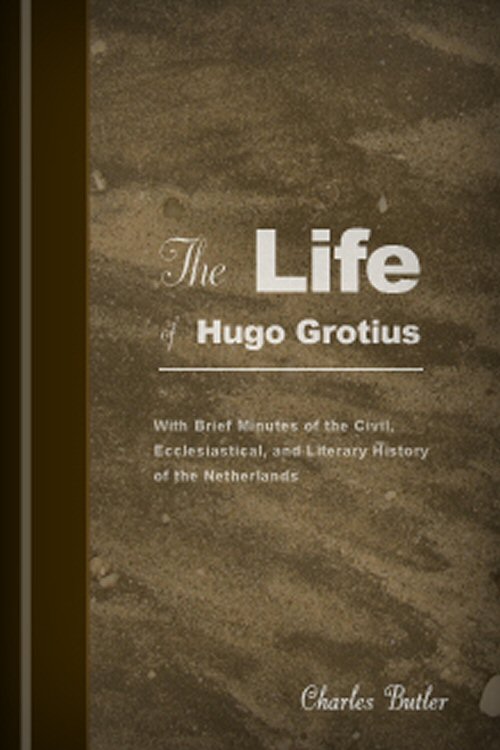
Charles Butler gives a historical account of the Netherlands and Germany from AD 800 to 1519 and an in-depth biography of Hugo Grotius. He discusses Grotius’ political and religious sentiments, life and work, and political influence. His work provides an overview of significant events that occurred during Grotius’ life, such as the Synod of Dort, and of their importance and relevance to Grotius and the Reformation.
Charles Butler (1750–1832) was an English Catholic and legal writer.
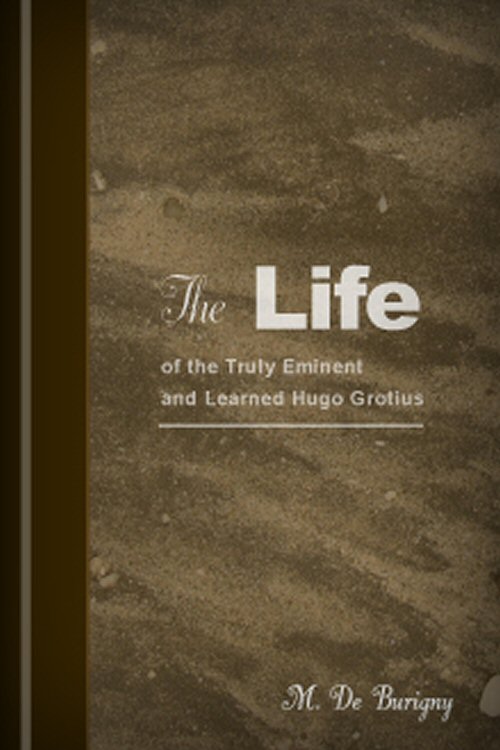
This early biography of Hugo Grotius provides a criticism of his written works and and an account of his life, political encounters, escape from prison, and various positions of counsel and import held.
Jean Lévesque de Burigny (1692–1785) was a French historian.
Reviews
4 ratings

Daniel Caballero
3/16/2023
Eugene
9/2/2017
AeliusCicero
6/19/2014

RevSarge
8/5/2013